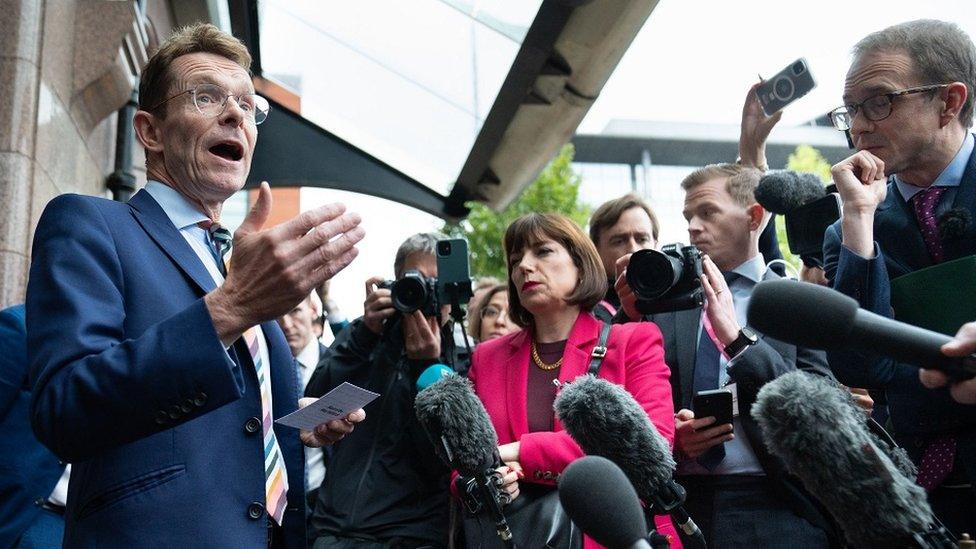Five policy ideas being pushed at Conservative Party conference
- Published
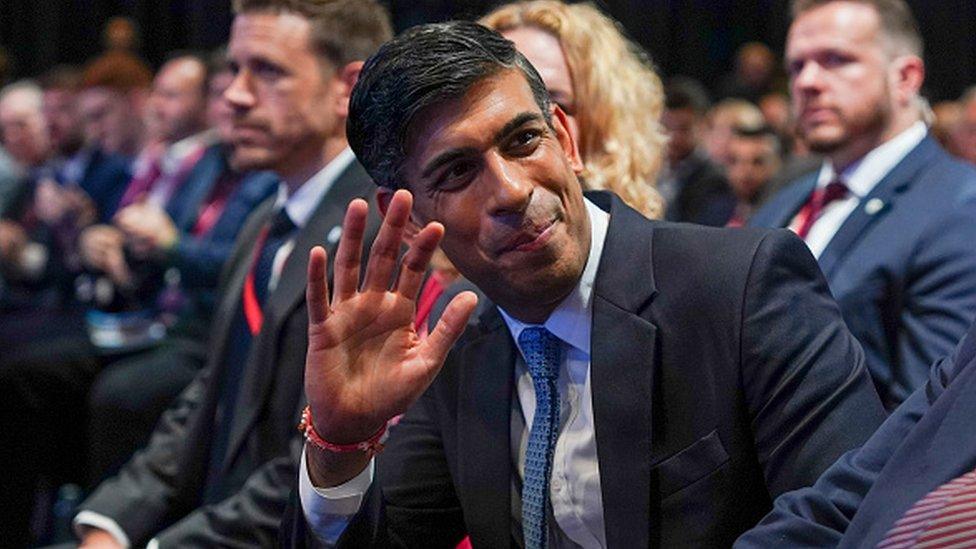
Political party conferences are typically abuzz with ideas, with MPs, lobbyists and researchers floating their policy proposals to a receptive audience.
Many of these ideas come from fringe events organised by think tanks and pressure groups aligned with the party's political philosophy.
This year at the Conservative conference, some big themes have emerged as the party casts around for the building blocks of its manifesto ahead of the next general election.
We've picked out five that have set tongues wagging in Tory circles in Manchester.
Tax cuts
Not much at Conservative conferences can be said to be certain, except calls for lower taxes.
In the run up to the conference, senior Tory MPs on the right of the party made the case for slashing taxes to boost economic growth, putting pressure on Chancellor Jeremy Hunt to heed their demands in his Autumn Statement next month.
On day two of the conference, former Prime Minister Liz Truss turned the screw by making a speech centred on her vision of a low-tax economy.
At a packed-out fringe event, Ms Truss fired up activists by telling the Conservatives "to be the party of business again" by reducing corporate taxes and red tape.
Watch: Liz Truss says firms need to expand, grow and create new jobs
Ms Truss said: "We must make the Conservative Party the party of business once again, by getting corporation tax back down to 19%.
"This is how we make Britain grow again. It is free businesses that will get us there, not the Treasury, not the government and not the state."
Reduce immigration
For decades now, Tory leaders from Michael Howard to Rishi Sunak have been arguing that immigration to the UK is too high and needs to be curbed.
Since David Cameron's government, the concept of net migration - the difference between those entering and leaving the UK - is the lens through which this has been debated.
But Conservative promises of getting net migration down to the tens of thousands a year have failed to materialise. In fact, migration added 606,000 to the UK's population in 2022, the highest number on record.
That's unacceptable to the New Conservatives, a group of Tory MPs elected since the Brexit referendum in 2016.
At a manifesto rally, they promoted their plan to reduce net migration by 400,000 people.
Speaking at a fringe event, former cabinet minister Sir Jacob Rees-Mogg and Tory MP Tom Hunt proposed halving the number of visas awarded to migrant workers, foreign students and their families.
The government says more than three million visas were granted in the year ending March 2023. Of those, 632,006 were study visas.
"Ultimately, we do believe that the student route has been abused by some as a backdoor to the country," Mr Hunt said.
"And we don't believe that when you finish your degree, you should hang around for two years afterwards, even if you have a job to go to."
AI regulation
The global boom in artificial intelligence has been a source of both optimism and anxiety among politicians.
Mr Sunak has been talking up the UK's AI credentials for a long time and sees the sector as a major source of economic growth.
The government hopes its AI summit in November will cement the UK as a major global player in the industry.
But there are fears about the potential economic, social and political pitfalls of the new technology, with business luminaries such as Tesla CEO Elon Musk calling for regulation.
At the Conservative conference, AI regulation was the subject of a fringe event organised by the Onward think tank.
Appearing on the panel, the minister for AI, Viscount Camrose, said regulators must be built to make sure "risks on the horizon are spotted".
"That kind of model gives us a blueprint to an agile approach to regulating AI," Viscount Camrose said.
"The key thing is going to be international engagement, and making sure that our regulation is interoperable with international regulation."
Rethink the green belt
The idea of a green belt acting as a buffer between housing developments and countryside, to stop urban sprawl, has been a sacrosanct Tory principle for decades.
But with the supply of housing struggling to keep up with growing demand across the UK, talk of redefining the green belt is no long taboo.
Somewhat bravely, one fringe event hosted by the Centre for Policy Studies asked: is our one-size-fits-all approach to the green belt still appropriate, given the scale of the housing crisis?
On the panel, the general consensus was no, it is not.
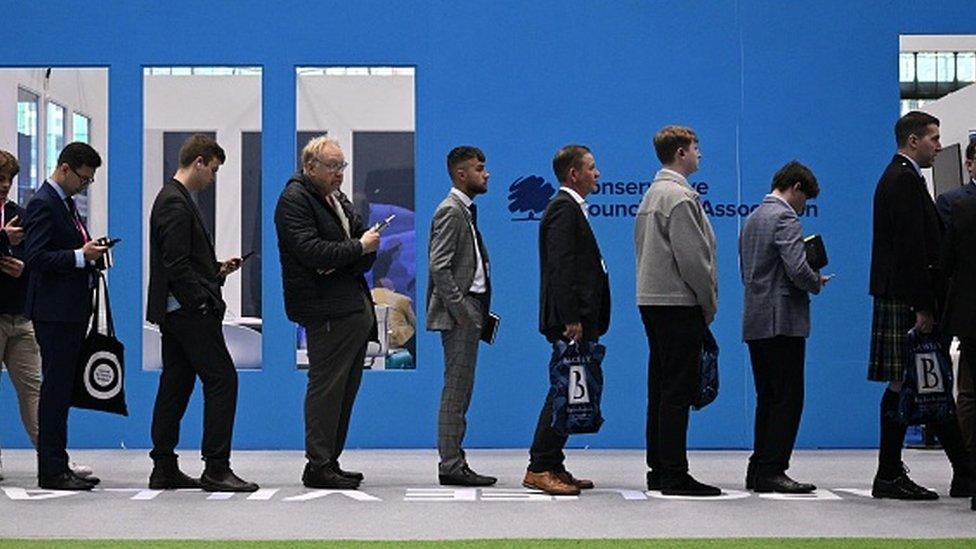
One speaker, former housing minister Brandon Lewis, said while he thought the green belt was "hugely important", it needed reforming.
"There are parts of the green belt that are not green," Mr Lewis said. "There are areas that most of us would think are brownfield."
He added: "We also need to be honest and open about the fact that the green belt, like everything over the last hundred years roughly, needs to be reviewed and changed."
An east-to-west rail line
Speculation over the future of the Birmingham-to-Manchester leg of the HS2 high speed rail line was incessant at the Conservative conference.
For days, the prime minister insisted no decision has been made, despite multiple reports to the contrary.
West Midlands Mayor Andy Street and other senior figures were pleading with the prime minister to keep the project on track.
But others in the party think HS2 is not the biggest priority.
The Northern Research Group of Tory MPs, for example, would like to government to invest in east-west connectivity, rather than the north-south HS2 line.
They want the government to put money into what they call the Charles Line (formerly Northern Powerhouse Rail), connecting the north west with the north east of England.
The Tory Mayor of Tees Valley, Ben Houchen, said the lack of rail connections in the north of England was "where the biggest problem is".
"Trying to get from Darlington in my area to Manchester airport is an absolute joke," Mr Houchen said.
"That's where we should be prioritising the money."
Related topics
- Published1 October 2023
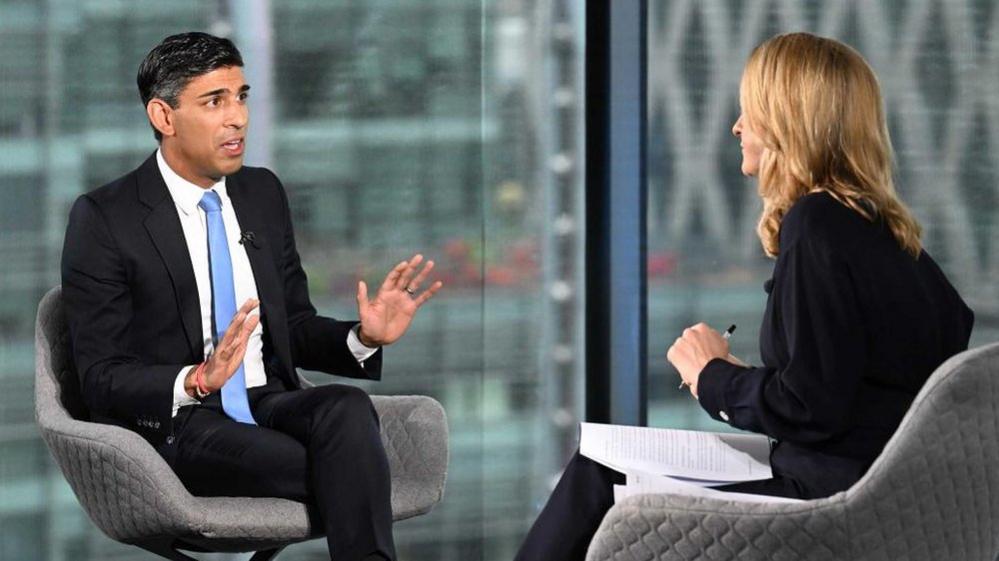
- Published2 October 2023
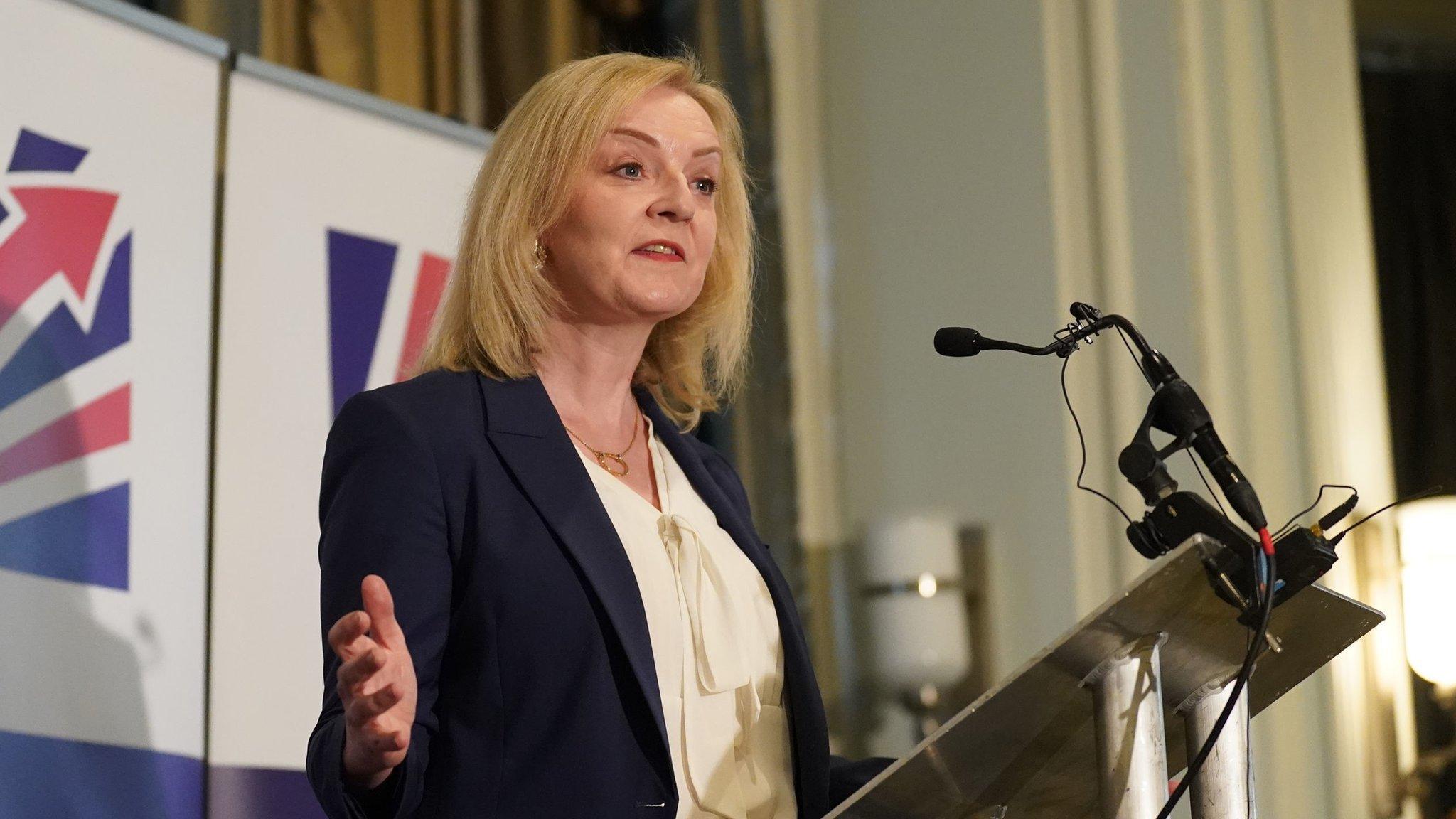
- Published2 October 2023
